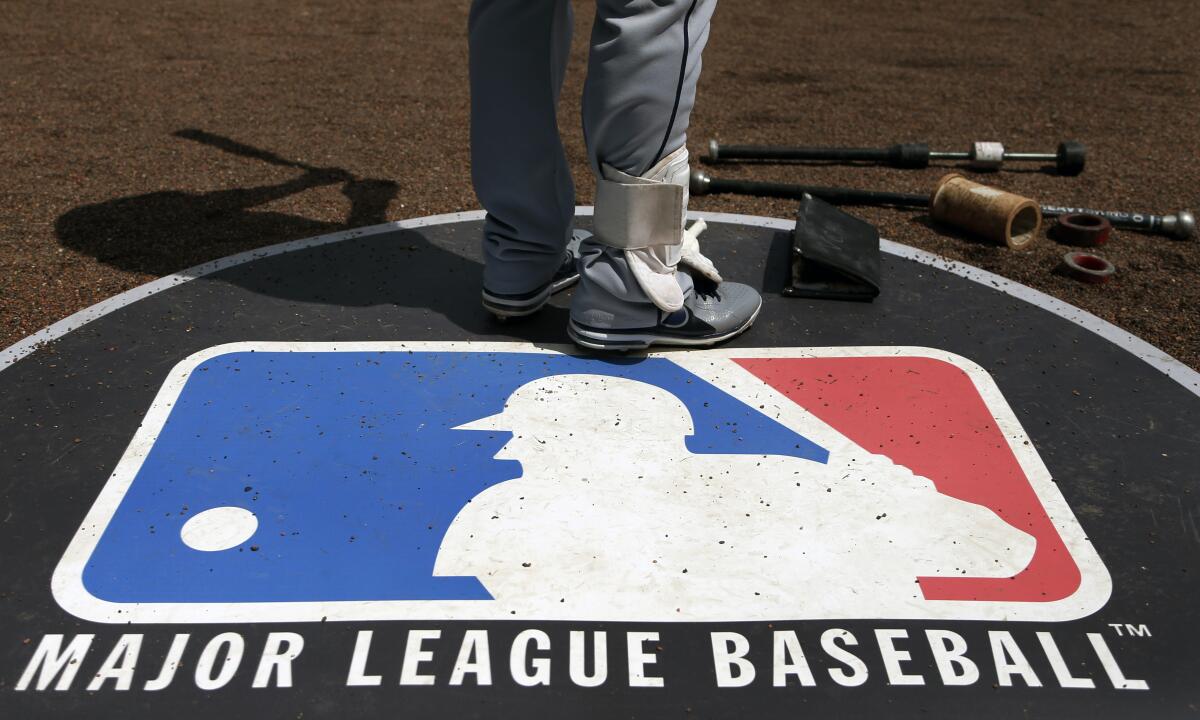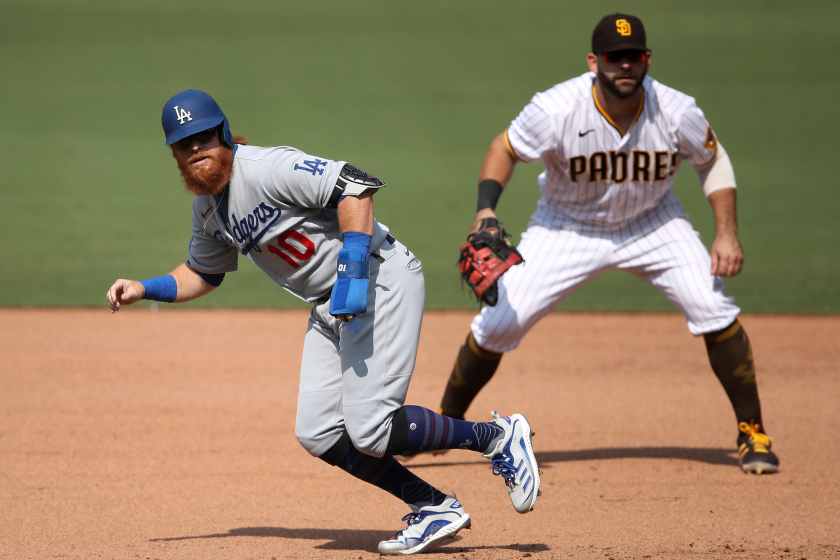Supreme Court rules lawsuit against MLB over minor league back wages can proceed

- Share via
Six years after a group of minor leaguers sued Major League Baseball over alleged violations of federal minimum wage laws, the suit can proceed.
For years, the legal battle has focused on whether the suit should be limited to the approximately four dozen players listed as plaintiffs, or whether it could be expanded on behalf of all minor leaguers. The 9th Circuit Court of Appeals ruled last year that all minor leaguers who had played in California, Arizona and Florida were eligible to sue.
On Monday, the Supreme Court without comment denied MLB’s request to reconsider that ruling.
If the minor leaguers win, the denial means that MLB and its teams could be liable for back wages to thousands rather than dozens of players.
Faces of the Dodgers are the reserved, respectful Clayton Kershaw and Mookie Betts. Faces of the Padres are the exuberant Fernando Tatis Jr. and Manny Machado.
Every team holds spring training in Arizona or Florida, but teams generally do not pay player salaries until the start of the regular season.
“We’re saying they should be complying with the same laws that Walmart and McDonald’s comply with,” said Garrett Broshuis, an attorney representing the players. “There’s no reason Major League Baseball can’t figure out a way to do that.”
In 2018, four years after the suit was filed — and after lobbying from MLB — Congress passed a law that guaranteed the federal minimum wage to minor league players. However, the law exempted teams from having to pay overtime, no matter how many hours a player might work. The suit seeks retroactive compensation for alleged violations of minimum wage and overtime laws.
In a statement, MLB declined to comment on the litigation but said it already had committed to minor league salary increases ranging from 38% to 72% for the 2021 season. MLB is expected to eliminate about 40 minor league teams next season, and with them about 1,000 player jobs. The league currently is negotiating a new agreement with minor league owners.
“MLB remains focused on modernizing its player development system to enhance the Minor League experience for players,” the statement said, “including providing them with renovated facilities, reduced travel, and improved daily working conditions.”
More to Read
Go beyond the scoreboard
Get the latest on L.A.'s teams in the daily Sports Report newsletter.
You may occasionally receive promotional content from the Los Angeles Times.












